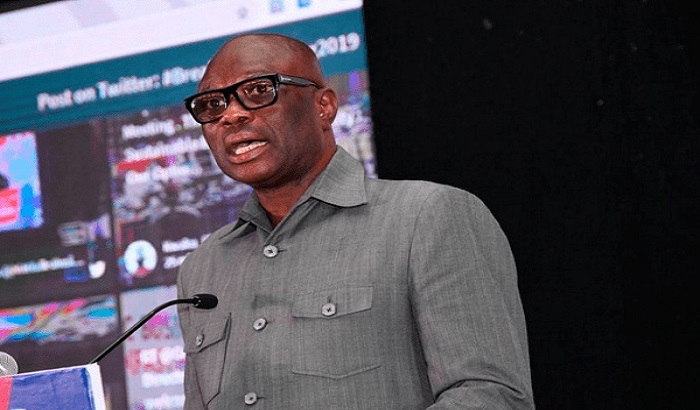President of the Ghana Union of Traders Association (GUTA), Dr. Joseph Obeng, has welcomed the opening of borders to commence cross- border trading activities with Nigeria.
According to him, as a result of this timely reopening of the borders, its members will commence business with Nigeria with the reopening of the country’s land borders.
“It is very good for us to start again the cross-border trading activity that was going on, so definitely, it is going to enhance upon the trading along the corridor which is welcome news for us. Now, trading is going to start in brisk as people have gotten the information that the borders are opened. People will go there to access the goods that they can procure from there”.
That notwithstanding, Dr. Obeng noted that, it will certainly take some time for the members of the Association to entirely recommence trading with their Nigeria colleagues.
“People have relocated to other destinations like Dubai and elsewhere to procure their goods. So, it’s not going to start very quickly like that, but we believe that by February to March this year, business will start in earnest”.
Nigeria closed its land borders in 2019 to all movement of goods and had no timeline for reopening them, the head of the nation’s customs agency revealed.
Hameed Ali, controller-general of the Nigerian Customs Service said, “All goods, for now, are banned from being exported or imported through our land borders and that is to ensure that we have total control over what comes in”.
President Muhammadu Buhari unexpectedly closed Nigeria’s borders to imported goods in August declaring the time had come to end rampant smuggling across the porous frontiers.
The closure has had a devastating effect on Benin, Nigeria’s neighbor to the west, which has been a key exporter of foodstuffs to Africa’s most populous country.
It pushed up prices for staples such as rice at markets around Nigeria.
Mr. Ali’s announcement was the first official confirmation of a total shutdown in trade across Nigeria’s land borders including goods that had been moving legally.
“We are strategizing on how best the goods can be handled when we eventually get to the point where this operation will relax for the influx of goods”.
He however did not give a timeline for any relaxation of the controls.
The closure did not affect Nigeria’s oil exports, which are exported almost entirely via the nation’s ports and offshore oil platforms.
He further disclosed that all imports should now come through the country’s ports where they can be monitored more easily and generate much-needed revenue.
Nigeria relies heavily on imports to feed its booming population of some 190 million, but the government is seeking to bolster domestic agriculture as it looks to diversify the oil-dependent economy.
Unilateral border closures go against all commercial and freedom of movement treaties signed under the Economic Community of West African States (ECOWAS).
The closure has also cast a shadow over a historic free-trade agreement, signed by 54 out of 55 African countries that reached a key operational threshold in July.
Nigeria, as well as Benin, had signed onto the pact on the eve of the landmark day; a move hailed as a crucial push towards ending the continent’s trade barriers.




















